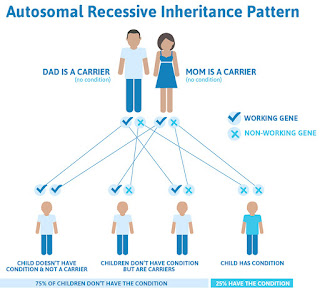The Clinical Spectrum of Inflammatory Bowel Disease Associated With Specific Genetic Syndromes: Two Novel Pediatric Cases and a Systematic Review
Life With Bleeds Before And After A Hemophilia B Diagnosis At 50
I don't recall when I met Debbie Murray, but I remember the impression she left on me. Her frustration with the long and challenging journey to a proper diagnosis and effective treatment of her hemophilia was unmistakable.
Debbie, 56, resides in Norwood, a village in the northernmost part of New York. I believe her story holds significant importance, so I recently sought to interview Debbie via email. Certain answers were edited for clarity or style.
JL : Debbie, can you tell us about your family's history with hemophilia?DM: Hemophilia B has been part of my family for generations. My father had it, so it was something I grew up around. There have also been other family members affected: two great-uncles who died young from bleeds, a cousin who passed as a toddler, another who died from hepatitis C in his 60s, and one who passed from HIV/AIDS at just 30 years old. One cousin needed a liver transplant due to hepatitis B. My father passed away at 65 from hepatitis C. Now, hemophilia continues in our family through me, my sister, my son, my granddaughter, and my grandson.
Looking back, when did you start noticing symptoms of hemophilia in yourself?Even as a child, I had symptoms, though I didn't realize it at the time. I would cry from the relentless pain in my legs and ankles, and injuries on the farm took a long time to heal. But as a girl, my pain was often dismissed as overdramatizing. When I started menstruating, the heavy bleeding and clots seemed normal because I didn't know anything else. A big turning point was at 17, when I had a tonsillectomy. I vomited blood and bled for days, needing three blood transfusions. Despite that, my condition was dismissed.
How did hemophilia affect you later in life?There were many signs over the years — joint pain, excessive bleeding after dental work, and hemorrhaging during childbirth. The birth of my son was especially traumatic because doctors struggled to stop my bleeding. Still, I put my symptoms on the back burner, focusing on his diagnosis. At 35, I had gallbladder surgery, which led to a serious complication when a vein was accidentally cut. That caused a hematoma and nerve damage in my right leg.
It wasn't until I was almost 51 that I was formally diagnosed with hemophilia.
How did receiving your diagnosis change things for you?It was a revelation. Before my nasal and melanoma surgeries, I was treated with factor for the first time, and I couldn't believe how much easier and less painful my recoveries were. But even with a diagnosis, challenges persisted. For example, I wasn't given factor for cataract surgery, and I ended up with a severe tissue bleed afterward. There were times I had to rely on factor from my father and son when my own care fell short.
It took me years of searching, but I finally found Danielle Nance in Arizona, a hematologist who truly understands women with hemophilia. Traveling to see her is expensive and time-consuming, but it's worth it. For the first time, I feel heard and respected as a patient.
What has inspired you to tell your story?As I've grown older, I've become more determined to fight for women and girls with bleeding disorders. My 13-year-old granddaughter has joint damage because of inadequate treatment, and that fuels my drive to raise awareness and push for better care.
What are your hobbies?I love spending time with my family, especially my grandchildren. Traveling to warm places and spending time by the ocean are some of my favorite things. I also enjoy gardening, kayaking, going to hockey and baseball games, and attending rock concerts — though I'll occasionally go to a country concert, too. Crafting, reading, and cake decorating are hobbies of mine; I've even made wedding cakes for my son and daughter. At home, I'm surrounded by my pets: two dogs, two cats, and four bunnies who have their own room.
Who inspires you?My mother is my biggest inspiration. She had a stroke when I was a baby and has faced significant mobility challenges ever since. Despite that, she's shown incredible resilience and determination throughout her life. At nearly 81, she's still a role model for me.
What advice would you give to someone newly diagnosed with a bleeding disorder?Advocate for yourself fearlessly. Knowledge, connection, and persistence are key. Seek out reliable information, attend conferences, and find support in the bleeding disorder community. If a doctor doesn't listen or provide adequate care, don't settle — keep looking until you find one who does. You deserve to be heard and treated with respect. Never settle for less.
***
Thank you, Debbie!
Note: Hemophilia News Today is strictly a news and information website about the disease. It does not provide medical advice, diagnosis, or treatment. This content is not intended to be a substitute for professional medical advice, diagnosis, or treatment. Always seek the advice of your physician or another qualified health provider with any questions you may have regarding a medical condition. Never disregard professional medical advice or delay in seeking it because of something you have read on this website. The opinions expressed in this column are not those of Hemophilia News Today or its parent company, Bionews, and are intended to spark discussion about issues pertaining to hemophilia.


Comments
Post a Comment